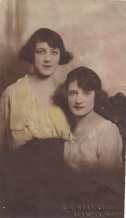 Writing sprints are timed writing sessions of usually 15-60 minutes where writers try to achieve a specific word count or write as many words as possible. Just like running sprints, writing sprints aim to maximize results in minimal time.
Writing sprints are timed writing sessions of usually 15-60 minutes where writers try to achieve a specific word count or write as many words as possible. Just like running sprints, writing sprints aim to maximize results in minimal time.
We are going to explore exactly how to do just that…every time.
Why Writers Do Writing Sprints
There are many reasons why a writer might conduct a writing sprint. But the most helpful is to cure writer’s block.
A writing sprint can be an effective way to break out of a writing slump. Writing sprints, with their focus on high intensity pace and word count over quality, can be just the kickstart a writer needs to shatter writer’s block.
Ok, that’s all well and good, but how do you actually do a writing sprint?
Start by deciding whether you want to do a writing sprint alone or as part of an event with other writers. Solo sprints are more flexible because you only have yourself to think about, but tandem sprints or group sprints can be incredibly motivating and fun.
Select a writing goal, usually a set word count or number of pages if you want to complete. Usually this number is between 500 and (gulp) 1,000 words.
Next, choose a time limit between 15 and 60 minutes. Obviously, make sure the time limit is reasonable for the goal! You don’t want your hand to fall off.
If possible, remove all distractions. Choose a quiet place to conduct your sprint so you won’t be disturbed or interrupted by noise or other people. (Of course, some writers thrive off ambient coffee shop sounds or music, so do whatever works best for you!)
Prepare your writing tools. Gather your pencils, pens, paper, timer, laptop, writing software or apps, etc. It’s a good idea to have backup writing tools and to ensure that your computer is fully charged with a charging cable available in case you need it.
If you are using a timing device like an egg timer, get that ready and ensure that it is fully charged or has batteries with backup batteries available.
 Make a writing plan. Either have a prompt (or series of prompts) ready or create an outline for the scene, chapter or sequence you want to write. A little bit of preplanning can make all the difference in your pace during a sprint.
Make a writing plan. Either have a prompt (or series of prompts) ready or create an outline for the scene, chapter or sequence you want to write. A little bit of preplanning can make all the difference in your pace during a sprint.
Choose a time of day when you know that you will have high energy and few distractions. Some writers write best in the mornings, others do better at night. If you have a choice, pick the optimum time for your sprinting.
Following is a sample of my own writing sprint. Four hundred words in 15 minutes. I used only one punctuation, the period. As I intended to use an edited version of this in my current book-in-progress, I threw in quote marks out of habit. A habit hard to break.
Detective Phoebe Sneed knew she had one shot to make people believe that she was under age, no more than seventeen. These men liked ‘em young if reports were to be believed. She put on her big eyed innocent look and walked through the door of the mansion. She heard music coming from somewhere in the back of the house. She found a hallway leading back of the house and walked down it. the music intensifying. Stepping through a doorway, she entered what looked like a small ballroom. Some furniture bordered the walls leaving a sizable space for dancing. The girl she met last night rushed up to her. “Where’d you go last night?” You disappeared.” Phoebe sighed and pouted, “I got sick. I ate at a bodega for lunch and it hit me. Something must have been bad.”
“Well, come join the party. I told Geoff all about ya. He wants to meet you. He’s fond of brunettes. How old are ya, did you say?”
“I’m sixteen.”. Phoebe waited for the incongruitous laughter but the girl just nodded and grabbed her by the wrist. Pulling her onto the dance floor, she began to gyrate in front of Phoebe and they joined the dancers.
Meanwhile, a small knot of middle-aged men stood in a corner watching the young dancers. It was reputed that Geoff Wexstein collected princes, politicians,

CEO’s, and an occasional Catholic Bishop to his parties. Their leers were not hidden as the men all but salivated in front of the young girls. A politician, in an Italian silk suit and bold red tie whispered in Geoff’s ear.
“Fuck, Geoff, this is a prime batch of pussy, here. How old are they?”
“Giselle tells me the usual; around fifteen, sixteen. Nice, huh?”
“I’m gonna go dance.” The politician peeled off and half danced across the floor to join the girls. Soon they were are around him, laughing and gyrating. They could smell the money coming off of him in waves, mixed with the Armani after shave.
Phoebe danced with the guy, avoiding his hands which had a propensity to wander and accidently brush butts and breasts. “Eww.” She thought. What a creep.”
Soon the other men had joined in the group dance and in a few minutes, pairs were being formed. Geoff, the host, was very careful that there were always more girls than men so there was plenty of choice. ©
Tune in tomorrow for the conclusion. In the meantime try your own writing sprint.
~~~~~~~~~~~~~~~~~~~~~~~~~~~~~~~~~~~~~~~~~~~~~~~~~~~~~~~~~~~~~~~~~~~~~~~~~~~~~~~~~~~~~~~~~~~~~~~~~~~~~~
















































